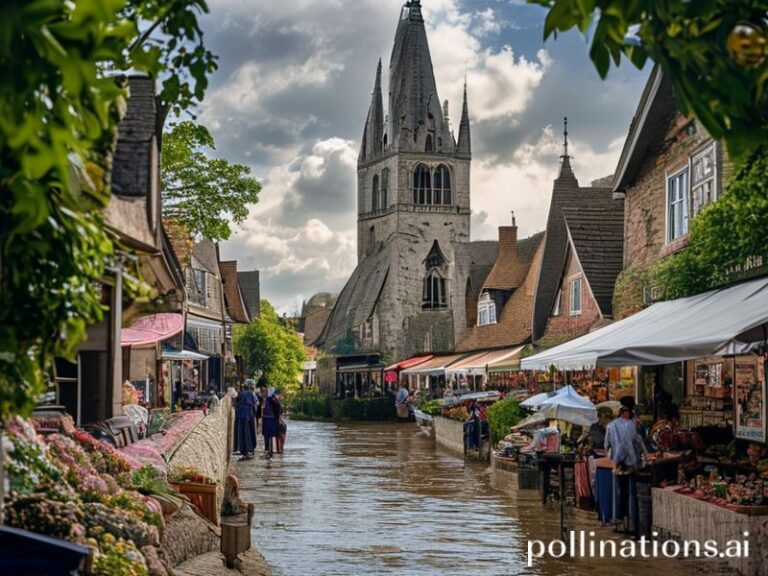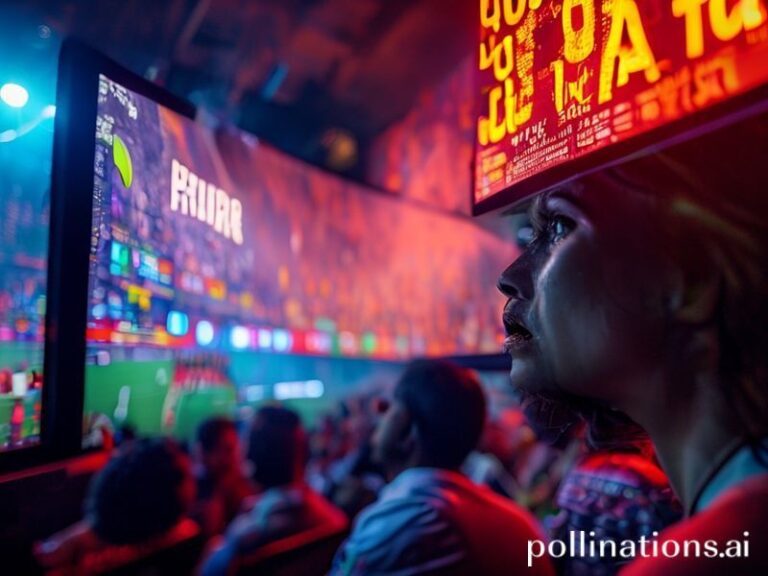Alice in Borderland Season 3: The Global Phenomenon That Proves We’re All Playing a Losing Game
**Alice in Borderland Season 3: Because the World Needed Another Reminder That Life Is One Giant, Unwinnable Game**
*By our international correspondent who’s beginning to suspect the real borderland is just Tuesday*
TOKYO—In what can only be described as the entertainment industry’s latest attempt to monetize our collective existential dread, Netflix has summoned forth Alice in Borderland Season 3, proving once again that nothing says “global streaming success” quite like watching attractive people solve murder puzzles while questioning the fundamental nature of reality.
The Japanese dystopian thriller, which has captivated audiences from São Paulo to Stockholm, returns at precisely the moment when global civilization seems to be conducting its own twisted social experiment—minus the cool playing cards and significantly more inflation. One might argue that watching characters navigate a desolate Tokyo while playing deadly games for survival feels oddly… familiar? Perhaps that’s why international viewership has skyrocketed faster than cryptocurrency during a pandemic.
“The show resonates globally because it reflects our universal anxiety about living in systems we don’t understand,” explains Dr. Marina Volkov, a cultural anthropologist at the University of Copenhagen, presumably between therapy sessions. “Whether you’re in Mumbai traffic or a Berlin bureaucracy, life increasingly feels like being forced to play games whose rules are explained in a language you don’t speak by people who may not have your best interests at heart.”
Indeed, the show’s international appeal lies in its elegant simplicity: take ordinary humans, drop them into an inexplicable dystopia, and watch them discover that the greatest monsters are, disappointingly, still other humans. It’s basically international relations with better lighting and more immediate consequences.
From Buenos Aires to Bangkok, viewers have embraced the series with the enthusiasm of people who recognize that surviving modern life—complete with climate change, economic instability, and social media—requires approximately the same skill set as navigating a borderland death game. The difference, of course, is that in the show, death is usually quick and relatively painless, whereas in reality, it comes via slow environmental collapse and algorithmic manipulation.
The global success has spawned viewing parties from Lagos to Lisbon, where international fans gather to collectively process their trauma through the therapeutic lens of fictional suffering. “It’s cathartic,” explains Gabriela Santos, who hosts Alice viewing parties in Mexico City. “We watch people face impossible choices while playing cards, and suddenly our own problems—like choosing between rent and food—seem almost manageable by comparison.”
Netflix, ever the opportunistic cultural vulture, has seized upon this international hunger for dystopian content with the enthusiasm of a corporation that recognizes profitable despair when it sees it. The streaming giant has reportedly greenlit similar concepts across multiple continents, because apparently, what the world needs now is more fictional representations of societal collapse to help us process the real one happening outside our windows.
Season 3 promises to expand the universe further, presumably because the writers recognized that if you’re going to create a metaphor for late-stage capitalism, you might as well make it recursive. Early episodes suggest our protagonists will discover that the games extend beyond Tokyo, raising the thrilling possibility that the entire planet is one elaborate death match orchestrated by unseen forces—a revelation that will surprise absolutely nobody who’s been paying attention to global politics since 2016.
As international audiences prepare to binge another season of beautiful people making terrible choices, one can’t help but admire the show’s accidental profundity. In an era where reality increasingly resembles fiction, Alice in Borderland offers the comfort of recognizable patterns: the games may be deadly, but at least they’re honest about it.
The real joke, of course, is that we’re all players now. We just haven’t been issued our cards yet.







